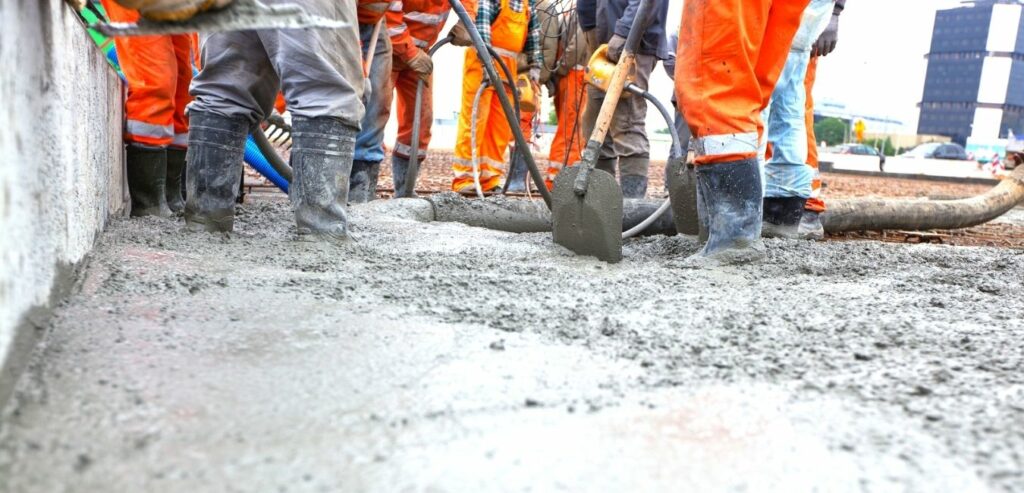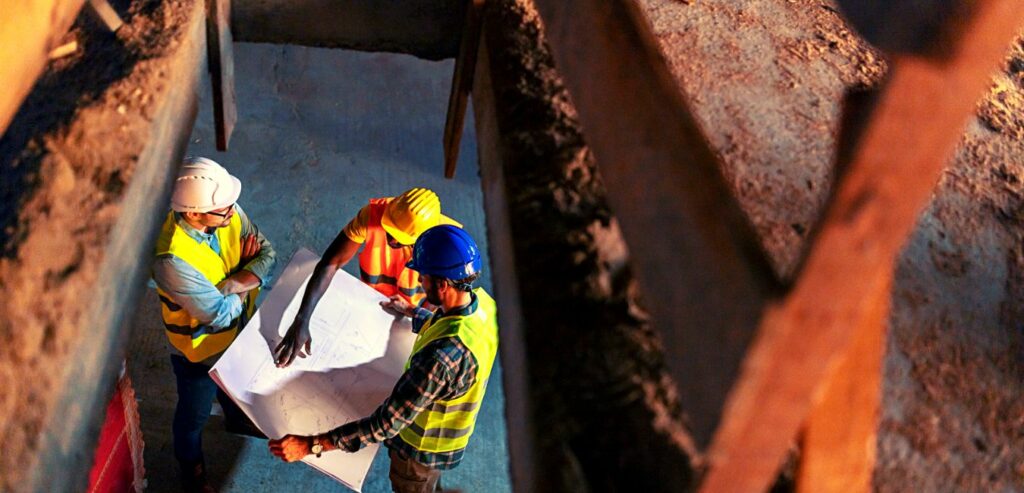Knowing how to bid for jobs significantly impacts your company's profitability. As a concrete contractor, the majority of your jobs come from bidding. Bidding also allows clients to shop around and find the offer that best suits their needs.
To successfully understand the bidding process, you need to understand your area of expertise, your business's working capacity, and financial capacity. This article will discuss bidding on concrete jobs to ensure you consistently land winning bids.
Table of Contents
The bidding process for concrete jobs
This is where contractors submit their bids to potential clients to get hired for a job. The bidding process varies depending on the type of job.
Government jobs have stringent bidding regulations, whereas private jobs are somewhat flexible on how the process can go.
Identify opportunity
The first step is to identify bid opportunities. The local, state, and federal governments offer daily opportunities and knowing how to find opportunities can benefit your business.
You can use bidding services such as government websites and journals. You can also use bidding sites that track the projects of public and private construction companies.
Assessment
After identifying a bid opportunity, you need to assess whether it is suitable for your company. You need to understand the contract requirements and your company's capability. Consider the competition in your bid, the timeline, the scope of work, and your team's resources.
If the ROI of the bid promises reasonable returns, you can proceed to submit the proposal.
Bid
The bid submission includes all the relevant company documents and management plans. It might also need to have a track record of completing tasks on time. It gives the company a professional touch.
If a bid meets all the client's criteria, it is likely to succeed. The selection criteria depends on the type of project. Most government projects focus on the lowest bidder to rule out bias, but private projects have more room to negotiate the contracts.
Negotiation
After a successful bid, the parties involved need to enter a legally binding contract. However, before that, there needs to be some room for negotiation. Negotiation helps in the project's final pricing and clarifies any unclear contract clauses.
After agreeing on contract terms, all parties can enter into a contract.

How to bid on concrete jobs
If you plan to bid on concrete jobs, you need to follow some standard routines to ensure a successful bid. Below are some of the tips you can implement for long-term success.
Know your client/location
Regardless of the concrete project you will work on, it is best to do a walkthrough of the project's site before committing to a bid. Knowing the project's location helps you understand some issues that you would not know if you did not show up in person. It also prevents you from committing to a budget or timeline that you cannot afford.
Understanding the client's goals also helps you thoroughly understand project details before calculating the details of a bid.
Calculate your costs and time
Underestimating construction costs can make you incur huge losses and spoil the relationship between a client and contractor. Some of the expenses you need to consider are subcontractor fees, labor, material, and equipment costs.
It would help if you also calculated time expenses such as your compensation for the time in the project and salary costs. After calculating your costs, you can compute the profit margin that helps you choose an amount that balances the chances of making substantial earnings from a contract.
Attention to detail
Thoroughly checking your bids before submission can mean the success or failure of your bid. It would be best to have a designated proofreader to ensure the bid looks as professional as possible.
You also need to read the bid documents and not make any assumptions. If there is doubt on any bid documents, it would be best to ask for clarification.
Use technology - if available
Technology can help make your bidding work easier. You can use cost estimation software and template software to help you make organized and better bid proposals without doing a lot of extra work.
Some software can also track your bidding history, making it easier to submit accurate and competitive bids.
Reasonable negotiation
After your bid is accepted, you can negotiate on contractual issues that you feel were not fully addressed. In most cases, bids are awarded to the lowest bidder without assessing other factors such as contractor expertise, but negotiations leave some wiggle room for contract adjustment.
However, it is best to negotiate wisely without pushing your interests too far, as your bid was accepted under the condition that it was within a specific price range.

Step by Step process of bidding on concrete jobs
Carry out an internal assessment
Before bidding, running an internal audit will help you see if you should proceed with it or not. For instance, find out if you have the internal capacity with the right professionals to proceed with the bid. Does your previous portfolio help your chances of winning the bid? Answering this is a guide before proceeding with the actual bidding.
Understand the client’s goals
Aim to understand the client’s expectations for the concrete job to give a more accurate bid. It is vital to speak directly to the client to hear it from them and ask some questions while getting immediate helpful feedback. To help in calculating the bid, visiting the premise is recommended.
Know the client's budget
This is through your research done to ensure that you are bidding correctly. It helps to identify what the project will involve and what your profit margin can be. Providing the client with a realistic bid per their budget can set you apart from the competitors on your radar.
Elaborate on available client options
This is often necessary if the stipulated budget is low as expected. As you bid for the concrete job, know that a client will appreciate seeing an array of options for cutting down particular costs or doing things differently. This can help make your bid stand out as it matches the client's needs.
Calculate time expenses and material costs
The time the employees will spend on the project should be accounted for. Their salaries, your time, and project compensation rates should be calculated to help you in bidding without undercutting yourself.
Materials costs take up a big chunk of the budget. Highlight the expenses needed, whether the options will be cheaper to align with the bid and other variations. Not only should you highlight the concrete costs, but all other materials.
Figure out your profit margin
Strike a balance between what you would least accept and the ideal profit you would take. After calculating costs and identifying what you can reduce, find a figure you are comfortable with. Getting a number that raises your chances of winning the bid is also essential. Should the bid seem unprofitable, it is recommended that you withhold your bidding. Accept concrete jobs that grow your work, and ensure that your professionalism is compensated for as you offer good quality to act as a future reference point for winning bids.
Stay open to adjusting your bids.
Increase the bid margins if need be, or reduce them. Stay open to noticing what the competition offers and adjust the bid accordingly. All in all, the concrete job bid should remain profitable.
Bid
Most clients require your filled forms on various categories, including proof of capacity to implement the project and a previous portfolio. It will likely succeed with the relevant documents and the pricing per their budget.
Negotiate
This is to discuss and clarify the unsure clauses of the contract, adjust the pricing points and reach a binding agreement. Once done, a contract is signed, and the concrete job can begin.
Tips to win a concrete bid
The following tips can help you bid and easily win concrete jobs.
Response time
Your response time to a bid reflects well on your company's organization. Understanding your client's requirements and submitting the bid on time builds up your reputation and gives you an edge over your competition.
Good communication
Good communication makes it easier for your business to stand out. It shows why your business is better than competitors and what makes you unique.
Proper communication helps all parties make accurate cost analyses, show a definitive scope of work, and the best strategy for project execution. It is also easier to foresee delays and unexpected challenges likely to drain your finances with proper communication.
Multiple options
When a client allows for more than one bid, you can increase the odds of winning a job by offering multiple bids. You can adjust your quotes in each bid to develop an arrangement that suits both you and the client.
For instance, you can offer the client different schedules to complete work at a premium.
Summary
You now understand what it takes to formulate good bids for your concrete jobs. The construction business is always competitive, so you have to set yourself aside from the rest.
Having a good bidding strategy is paramount for the consistent success of your business. If you misbid, you are going to lose time and money. Bidding is a tedious process, but it is the most crucial thing in your construction business.

